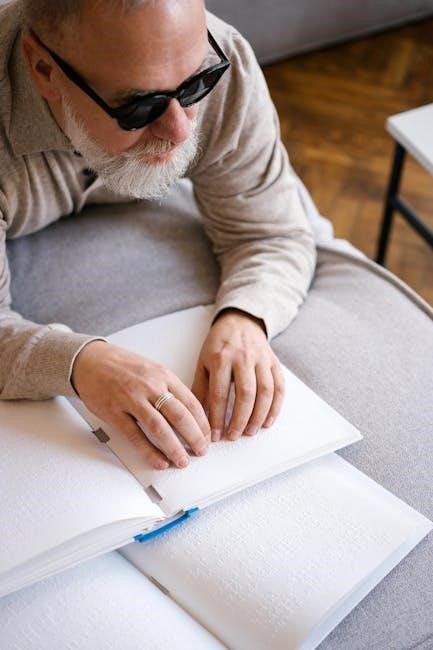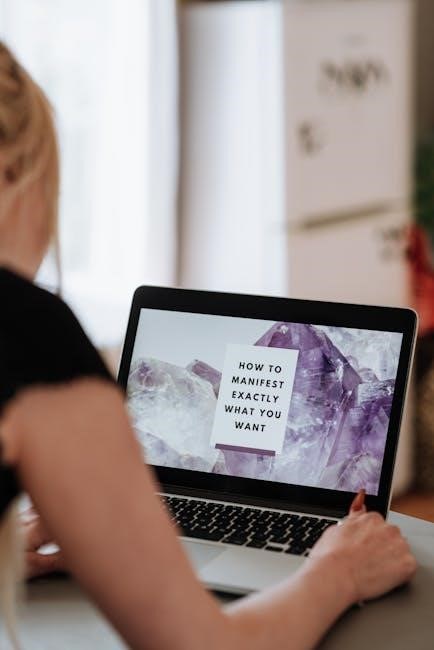Homophobia can lead to profound emotional pain, but healing is possible. This guide offers compassionate insights and practical tools to help you overcome shame and find self-acceptance.
Understanding the Scope of Homophobia
Homophobia is a deeply rooted societal issue that extends beyond individual prejudice, impacting LGBTQ+ individuals and communities globally. It perpetuates harmful stereotypes, discrimination, and violence, fostering environments of fear and exclusion. Understanding its scope is crucial for addressing the profound emotional and psychological effects it has on individuals, including internalized shame and self-doubt. Recognizing homophobia’s widespread influence is the first step toward healing and liberation.
The Importance of Addressing Internalized Homophobia
Addressing internalized homophobia is crucial for emotional healing and self-acceptance. It allows individuals to break free from self-hatred and societal expectations, fostering a healthier relationship with their identity. By confronting these deeply rooted beliefs, one can reclaim their authenticity and build resilience against external negativity. This process is the foundation for personal growth and living a fulfilling, true-to-self life. It’s a vital step toward mental well-being and empowerment.
Understanding Internalized Homophobia
Internalized homophobia refers to the absorption of societal anti-LGBTQ+ attitudes, leading to self-doubt and shame. It manifests as a deeply personal struggle, often causing emotional distress and conflict.
What is Internalized Homophobia?
Internalized homophobia refers to the acceptance of homophobic societal norms by LGBTQ+ individuals, leading to self-hatred and shame. It occurs when individuals internalize negative stereotypes, viewing themselves as flawed or unnatural. This harmful mindset often stems from societal prejudice, family rejection, or religious teachings. Internalized homophobia can manifest as self-doubt, anxiety, or even self-destructive behaviors. Recognizing this internalized bias is the first step toward healing and reclaiming self-worth.
The Roots of Shame and Self-Hatred
Internalized homophobia often stems from societal norms, family, or religious teachings that condemn same-sex attraction. These external messages can lead to self-loathing and a belief that being LGBTQ+ is inherently wrong. Shame arises when individuals internalize these harmful narratives, viewing themselves as flawed or unworthy. This self-hatred can manifest as self-rejection, fear of rejection by others, or even a desire to change one’s true nature. Recognizing these roots is the first step toward healing and self-acceptance.

The Causes of Homophobia-Related Shame
Societal norms, personal trauma, and negative messaging often fuel feelings of inadequacy and self-doubt, contributing to deep-seated shame and internal conflict.
Societal Norms and Expectations
Society often enforces rigid expectations around sexuality and gender, perpetuating heteronormativity. These norms can lead to internalized homophobia, as individuals may feel pressured to conform to avoid rejection or discrimination. Messages from media, education, and even religious institutions frequently reinforce these ideals, creating a sense of “otherness” for LGBTQ+ individuals. This can foster feelings of shame and inadequacy, as people may internalize the belief that their true selves are flawed or unacceptable.
Personal Experiences and Trauma
Personal experiences, such as bullying, rejection, or discrimination, can deeply embed homophobic beliefs within an individual. Traumatic events often intensify feelings of shame and self-hatred. Negative interactions with family, peers, or communities can lead to internalized homophobia, making it difficult to embrace one’s identity. Acknowledging these painful experiences is crucial for healing and understanding how they shape self-perception and emotional well-being.
The Impact on Mental Health
Homophobia deeply affects mental health, often leading to depression, anxiety, and stress. Societal pressures and internalized beliefs can erode self-esteem, but support and acceptance can foster healing and resilience.
Link Between Homophobia and Depression
Internalized homophobia often leads to depression, as individuals struggle with self-acceptance and societal rejection. The pressure to hide one’s true identity can foster feelings of worthlessness and isolation. Studies show that LGBTQ+ individuals face higher rates of depression due to discrimination and stigma. Addressing these deeply rooted issues is crucial for healing and reclaiming one’s mental well-being. Recognizing this link is the first step toward liberation and self-acceptance.
Anxiety and Low Self-Esteem
Internalized homophobia often manifests as anxiety and low self-esteem, stemming from societal norms and self-doubt. Many individuals struggle with feelings of inadequacy and fear of rejection, which can deeply impact mental health. Recognizing these patterns is the first step toward healing. By addressing these emotional wounds, you can begin to rebuild your sense of worth and cultivate a more compassionate relationship with yourself.

The Journey to Self-Acceptance
Embracing self-acceptance is an empowering process that involves overcoming internalized homophobia and fostering self-compassion. It’s a path toward liberation from shame and reclaiming your authentic self with pride.
Recognizing and Acknowledging Your Feelings
Recognizing and acknowledging your feelings is the first step toward healing from internalized homophobia. It’s important to validate the emotions you experience, whether it’s shame, anger, or fear. These feelings often stem from societal pressures and personal experiences. Understanding them without judgment is crucial. Progress begins with self-awareness and honesty about where you are emotionally. This foundation is essential for moving forward on your journey to self-acceptance and wholeness.
The Role of Education and Awareness
Education and awareness are powerful tools for combating homophobia and fostering self-acceptance. By understanding the roots of prejudice and learning about LGBTQ+ experiences, individuals can dismantle harmful stereotypes and challenge internalized beliefs. Awareness campaigns and inclusive resources help create environments where authenticity is valued. Empowering oneself with knowledge not only promotes healing but also encourages others to embrace diversity, paving the way for a more compassionate and accepting society.

Building Self-Compassion and Confidence
Cultivating self-compassion and confidence is vital for healing. By embracing your worth and challenging negative self-perceptions, you can move beyond shame and foster a stronger, more authentic sense of self.
Practicing Self-Forgiveness
Practicing self-forgiveness is a vital step in healing from internalized homophobia. Acknowledge the harm caused by societal norms without self-judgment. Understand that your feelings stem from external conditioning, not inherent worthlessness. Treat yourself with kindness, as you would a friend, and remind yourself that growth is a process. Self-forgiveness isn’t about erasing the past but freeing yourself from its weight, allowing space for compassion and healing to emerge.
Embracing Your True Self
Embracing your true self is a powerful step in overcoming homophobia-related shame. It involves acknowledging your authenticity, valuing your worth, and letting go of internalized negative beliefs. Self-acceptance is not about changing who you are, but about loving yourself fully. By recognizing your strengths and celebrating your uniqueness, you can build confidence and confidence in your identity. Embracing your true self means living authentically, free from the weight of societal expectations, and finding peace in being unapologetically you.
Seeking Support
Seeking support empowers individuals to confront homophobia-related shame, fostering healing through therapy and community connections, helping them thrive authentically and embrace their true selves.
The Importance of Therapy and Counseling
Therapy and counseling provide a safe space to explore and address internalized homophobia. Trained professionals can help individuals identify harmful beliefs, develop coping strategies, and foster self-compassion. Through techniques like cognitive-behavioral therapy (CBT) or mindfulness, therapy can empower individuals to challenge negative self-perceptions and work toward emotional healing. It’s crucial to find a therapist who is LGBTQ+ affirming to ensure a supportive and nonjudgmental environment. This process can lead to significant mental health improvements and self-acceptance.
Finding a Supportive Community
Discovering a supportive community is vital for healing. LGBTQ+ centers, support groups, and online forums offer safe spaces to connect with others who share similar experiences. These communities provide validation, understanding, and encouragement, helping to counteract feelings of isolation. Allies also play a crucial role in fostering acceptance. Surrounding yourself with positive, affirming individuals can significantly aid in your journey toward self-acceptance and empowerment. Remember, you don’t have to face this alone.
Challenging Negative Beliefs
Challenging negative beliefs requires critical reflection on harmful narratives rooted in societal homophobia. Questioning these beliefs empowers individuals to embrace their authentic selves and foster self-acceptance.
Identifying and Questioning Harmful Narratives
Identifying harmful narratives involves recognizing societal messages or internalized beliefs that perpetuate homophobia. These narratives often stem from cultural, religious, or familial teachings that devalue LGBTQ+ identities. Questioning these beliefs requires critical reflection on their origins and validity. Ask yourself: Are these ideas based on love and acceptance, or fear and control? Challenging such narratives is a powerful step toward healing, as it allows you to redefine your truth and embrace self-compassion. This process fosters growth and self-acceptance, helping you move beyond internalized shame.
Reframing Your Perspective
Reframing your perspective involves challenging negative beliefs and replacing them with positive, affirming thoughts. This process helps diminish internalized homophobia by fostering self-compassion and self-worth. By identifying distorted views and questioning their validity, you can cultivate a healthier mindset. Embrace your identity with kindness, recognizing your inherent value. This shift empowers you to move beyond shame, embracing authenticity and confidence in your true self.
Embracing Your Identity
Embracing your identity is a powerful step toward healing. Authenticity fosters pride and self-love, helping you overcome internalized homophobia and live an empowered, unapologetically true life.
Celebrating Your Authenticity
Celebrating your authenticity is a powerful step in overcoming homophobia-related shame. Embracing your true self fosters self-love and confidence. Recognize that your identity is valid and deserving of joy. Authenticity liberates you from societal expectations, allowing you to live freely and unapologetically. By honoring your uniqueness, you reclaim your voice and dignity, paving the way for personal growth and a more fulfilling life. True celebration begins with self-acceptance and pride in who you are.
Building Pride in Your LGBTQ+ Identity
Building pride in your LGBTQ+ identity is a powerful step toward healing. It involves affirming your worth, celebrating your uniqueness, and embracing your authentic self. Explore LGBTQ+ culture, history, and role models to foster connection and belonging. Share your story and let your voice be heard, knowing your experiences matter. Surround yourself with supportive communities that uplift and celebrate who you are. Daily acts of self-affirmation and self-love can nurture pride and resilience, helping you thrive unapologetically.

Creating a Supportive Environment
Creating a supportive environment fosters empowerment and healing. Surround yourself with loving individuals who embrace your authenticity and reject toxicity, allowing you to thrive in a safe space.
- Encourage open, non-judgmental conversations to build trust and connection.
- Set clear boundaries with those who undermine your self-worth.
- Cultivate relationships that honor your true identity and promote growth.
Surrounding Yourself with Positive Influences
Building a network of supportive, affirming people is crucial for healing. Positive influences can help counteract harmful societal messages and foster self-acceptance. Seek out friends, family, or communities that celebrate your authenticity and reject homophobia. Join LGBTQ+ groups or clubs where you feel valued. Surrounding yourself with love and acceptance can gradually replace feelings of shame with confidence and self-compassion, helping you embrace your true identity.
Setting Boundaries with Toxic Individuals
Setting boundaries with toxic individuals is crucial for your emotional well-being. Identify harmful behaviors, communicate your limits clearly, and prioritize your safety. Consistency is key to protecting your mental health. Surround yourself with people who respect and value your authenticity. Remember, you deserve kindness and support. By asserting boundaries, you reclaim your power and create space for healing and growth.
The Role of Allies
Allies play a key role in combating homophobia by supporting LGBTQ+ individuals and advocating for inclusive environments through education and activism, fostering acceptance and equality.
How Allies Can Support LGBTQ+ Individuals
Allies can support LGBTQ+ individuals by actively listening, validating their experiences, and advocating for their rights. Education about LGBTQ+ issues is key, as well as challenging stereotypes. Allies should avoid making assumptions and respect personal boundaries. Using inclusive language and correcting others when necessary fosters a supportive environment. Being an active bystander against discrimination and amplifying LGBTQ+ voices can create meaningful change and promote equality.
Creating a Culture of Acceptance
Fostering a culture of acceptance requires collective effort, education, and empathy. By promoting inclusive dialogue and challenging prejudiced views, we can dismantle homophobia. Encouraging allyship and amplifying marginalized voices helps create safe spaces for self-expression. Allies play a crucial role in advocating for equality and supporting LGBTQ+ individuals. Together, we can build a society where diversity is celebrated, and authenticity is embraced without fear of judgment or rejection.
Healing and Moving Forward
Overcoming homophobia-related shame is a difficult but possible journey. With self-compassion and support, you can reclaim your identity and live authentically, free from internalized hatred and fear.
A Message of Hope and Empowerment
Embrace your true self and know your worth. Healing is a lifelong process, but with courage and resilience, you can find peace, joy, and liberation from shame.
Healing from homophobia-related trauma is a journey of self-discovery and growth. It requires patience, self-compassion, and a willingness to let go of deeply ingrained shame. By acknowledging your experiences and embracing your true self, you can begin to rebuild your sense of worth. Surrounding yourself with supportive individuals and communities can provide the safety and encouragement needed to move forward. Remember, healing is not about erasing the past but about finding hope and empowerment in the present.
Overcoming homophobia-related shame is a courageous journey, but it is one filled with hope. Embrace your true self with compassion and recognize your inherent worth. Healing is possible.
Empowerment comes from rejecting harmful narratives and claiming your identity with pride. You are part of a resilient community that celebrates love and diversity. Trust in your strength and the support available to you. Self-love is your most powerful tool—use it to transform your life and embrace your authentic self with confidence.

Resources for Further Support
Explore recommended books, articles, and online communities for deeper understanding. Hotlines and support groups offer immediate assistance and connection. Continue your journey with these valuable resources.
Recommended Books and Articles
Explore literature that addresses internalized homophobia and LGBTQ+ identity. Books like The Velvet Rage by Alan Downs and Healing Homosexuality by Joseph Nicolosi offer insightful perspectives. Articles from The Trevor Project and GLAAD provide evidence-based guidance. These resources can deepen your understanding and offer practical tools for self-reflection and growth on your journey toward healing and self-acceptance.
Online Communities and Hotlines
Connecting with supportive online communities and utilizing hotlines can provide vital support. Platforms like The Trevor Project and GLAAD offer resources and guidance for LGBTQ+ individuals. Hotlines such as the National LGBTQ+ Hotline (1-888-843-4564) provide confidential, 24/7 assistance for those seeking help. These spaces foster connection, understanding, and empowerment, helping you navigate challenges and find acceptance. Reaching out is a brave step toward healing and embracing your true self.
